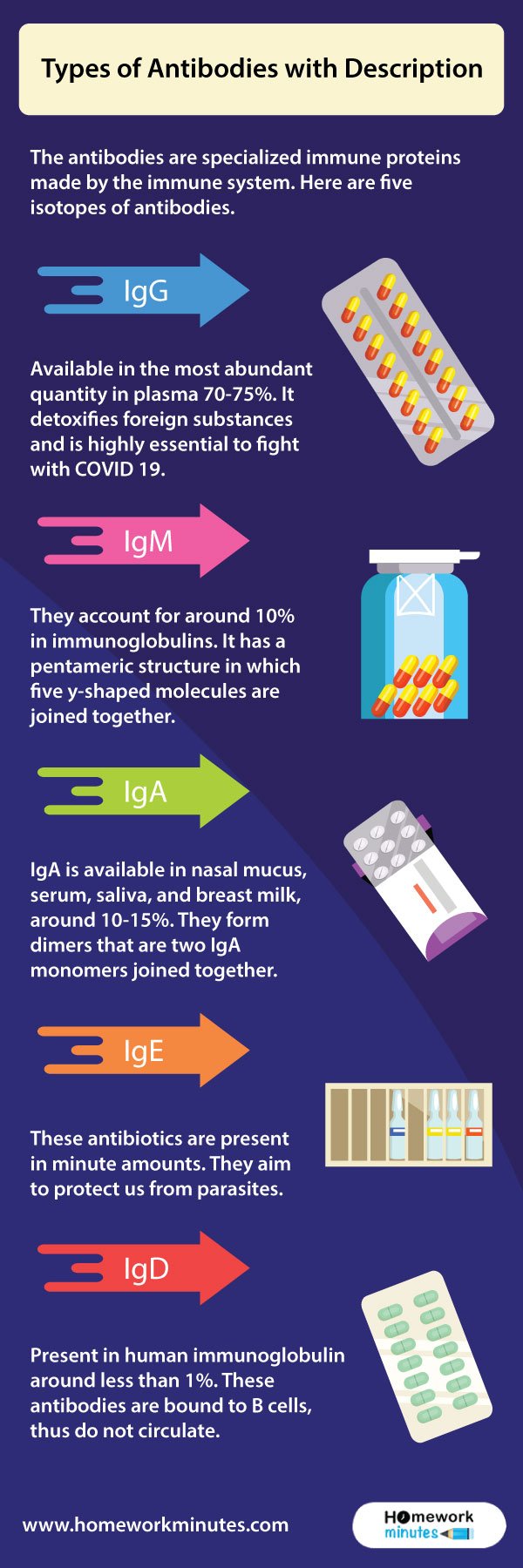There have been continuous testing going on amid the COVID-19 cases to determine if the person is infected by the virus or not. To know more about the virus, first, know the main cause of coronavirus. In the course of testing, there are several tests taking place, one including serological tests to make out, if the person has antibodies that can signal immunity to COVID-19. To understand the concept well, let’s first understand what these antibodies, their function in our body, and the types of antibodies are.
What are Antibodies and How Do They Work?
The antibodies are specialized immune proteins made by the immune system. These glycoproteins are also referred to as immunoglobulins, responsible for conducting or initiating the immune reaction. Antibodies are protein molecules produced in response to antigens, the harmful substances that come from outside the body, such as viruses or bacteria.
Antibodies are cells produced by B cells, also called B lymphocytes, found in bone marrow and lymph. Due to their Y shape, they have antibodies at the tips, which act as an active site to bind with antigens and destroy them. Now, there are five classes of antibodies with their specific functions.
Five Isotopes of Antibodies
Antibodies are also known as Immunoglobulins, found in the plasma of their blood. Here are antibodies with their main function and how they help fight against wiping off the infectious diseases.
IgG (Immunoglobulin A)
Location:- Found in all body
Available in the most abundant quantity in plasma 70-75%
It detoxifies foreign substances and is highly essential to fight with COVID 19
IgM (Immunoglobulin M)
Location:- Found in blood and lymph fluid
They account for around 10% in immunoglobulins
It has a pentameric structure in which five y-shaped molecules are joined together.
IgA (Immunoglobulin A)
Location:- Breathing and digestive passages present in saliva, tears, and blood
IgA is available in nasal mucus, serum, and breast milk, around 10-15%
They form dimers that are two IgA monomers joined together.
IgE (Immunoglobulin E)
Location:- Found in lung, skin, and mucous membranes
These antibiotics are present in minute amounts
They aim to protect us from parasites.
IgD (Immunoglobulin D)
Location:- Found in the tissues present in the chest and belly
Present in human immunoglobulin around less than 1%
These antibodies are bound to B cells, thus do not circulate.
How do Antibodies work in COVID-19 Treatment?
A serological test is also known as an antibody test, which detects antibodies in the blood when the body’s immune system responds to an infection. Amid the outbreak of the COVID-19 virus, the serological tests are essential to fight its harmful effects. These tests can help in determining whether a person shows a positive response to COVID-19 or not. As per the WHO reports, “ There is no evidence that people who have recovered from COVID-19 and have antibodies protected from a second infection.” So, the attack of antigens in the body, antibodies act as a protective barrier to prevent its harmful effects.
Also, amid the lockdown conditions too, Homework Minutes is there to provide you instant help in all other such biology topics for your assignment. We provide biology homework help from top experts, available 24*7.


